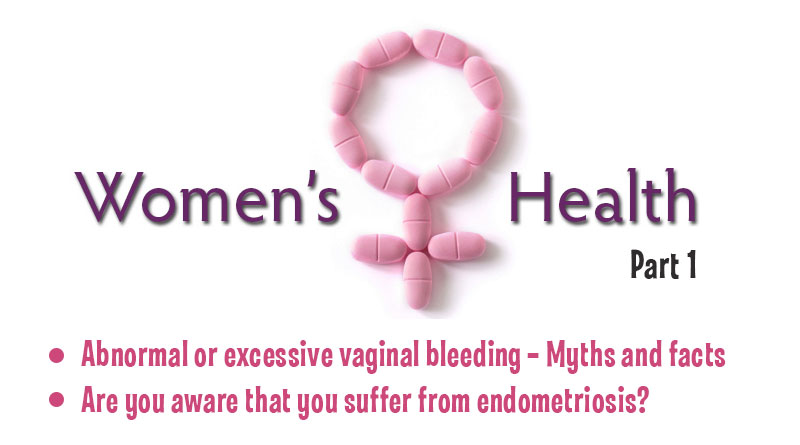Abnormal or excessive vaginal bleeding – Myths and facts
Excessive vaginal discharge in addition to your regular menstrual cycle could be quite troublesome if proper care is not being taken by you.
This bleeding occurs from the vagina during menstrual periods but is heavier than normal discharge.
Contraceptive Pills
Abnormal bleeding of the vagina is caused due to factors such as intake of contraceptive pills causing bleeding during normal periods, hormonal problems produced by thyroid, pituitary glands, and ovaries.
Other sexually transmitted diseases are caused by infections of the vagina, uterus, cervix, ovaries and fallopian tubes. A miscarriage is caused by a heavy period after one missed period of a woman.
TIG-10 A Breakthrough Cancer Fighting Herbal Solution – CLICK HERE
If you face heavy bleeding in between your normal periods that do not lasts for a long time then it is not necessary that you have some critical disease. This might be caused due to scars, tumors, fibroids or growth of abnormal tissue on the cervix but regular prolonged heavy vaginal bleeding needs attention. You should get proper check up because sometimes it might be due to growths in the uterine lining which may or may not be cancer.
Sometimes such bleeding is caused by injury to the vagina or reproductive tract during surgery or rape or when the tampon is stuck in the vagina. Bleeding disorders that affect the whole body such as leukemia can also cause abnormal vagina bleeding. If fever, abdominal pain, mucus substances along with vaginal bleeding persists then it could be an infection.

Vaginal discharge usually results from abnormal passages between organs due to injuries caused during childbirth, accidents or surgery. Vaginal discharge usually occurs because of infection causing itching, burning and painful urination. It is not necessary that all infections are sexually transmitted diseases and might be due to other causes like inflammation of the vagina due to hole in the vagina, pelvic inflammatory diseases, genital herpes, uterus infection and lack of the hormone estrogen.
Are you aware that you suffer from endometriosis?
Many women suffer from painful heavy, irregular flow in different form of reproductive disorders is a sign of endometriosis. You may face pain from the onset of your menstrual cycle and shall end after the lapse of the menstrual cycle. The problem here is that this sends most of the women with endometriosis to their doctors with chronic pain in their pelvis.
Other possible signs of endometriosis include diarrhea and painful bowel movements during the menstrual cycle. However the only symptom may be the tenderness of the abdomen most of the times in any particular spot.
Endometriosis is most commonly related to the menstrual cycle however it is not cancerous in about 95 percent5 of cases. In endometriosis, a layer of tissue that lines the uterus normally thickens with blood, shreds through the vagina as the menstrual period arrives. However, this tissue is found outside the uterus attached to or embedded in the body tissues.
In such condition, fragments of endometrial tissue appears almost anywhere in the body except within the “uterus”. Most often, the ovaries, fallopian tubes between the ovaries and uterus, the vagina and the uterine wall followed by the abdomen, intestine, bladder, and kidney is the most affected. In some rare cases endometrial tissue is even found in the lungs, skin, surgical scars, certain nerves, the brain and the lymphatic system.
Menstrual Cycle
It develops outside the uterus and appears to be normal and stimulated by the estrogen hormone continues to perform its normal function selling to accept a fertilized egg, disintegrating when conception does not occur and sloughing off in preparation for the next cycle. During each menstrual cycle, the tissue bleeds just as the endometrial does. The trouble here is that the tissue is longer in the uterus where it belongs but anywhere else in the body.
The bloody debris formed by the breakdown of the misplaced tissue has no way to escape. These tissues when accumulate produces irritation, inflammation and pain that could continue period after period. If left unchecked, the bleeding may create scar tissue that could even spread through the pelvis, twisting and attaching organs to each other thereby interfering with their proper function, filling the entire cavity and later producing a tumor like mass.




